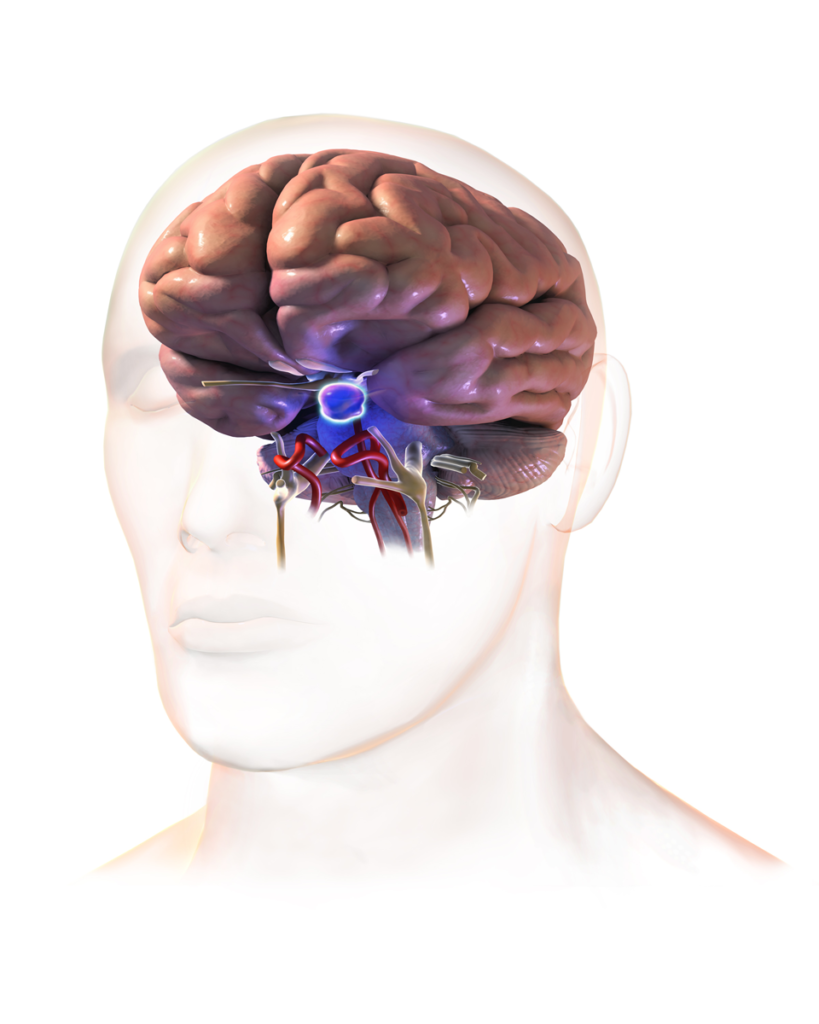Understanding Brain Tumors: Brain tumors are abnormal growths that occur in the brain or surrounding tissues. They can be cancerous (malignant) or noncancerous (benign). Brain tumors can occur in people of all ages, but they are more common in adults over the age of 50. In this article, we will discuss the causes, symptoms, and treatment options for Understanding Brain Tumors:.

Causes of Brain Tumors:
The exact cause of brain tumors is not known. However, certain factors may increase the risk of developing a brain tumor, including:
Age:
Brain tumors are more common in older adults.
Gender:
Men are more likely to develop brain tumors than women.
Genetics:
In some cases, brain tumors can be caused by genetic disorders.
Exposure to radiation:
Exposure to high levels of radiation may increase the risk of developing a brain tumor.
Immune system disorders:
People with weakened immune systems may be more susceptible to developing brain tumors.
Symptoms of Brain Tumors:
The symptoms of a brain tumor can vary depending on the size and location of the tumor. Some common symptoms of brain tumors include:
Headaches:
Persistent headaches that get worse over time are a common symptom of brain tumors.
Seizures:
Seizures that are not related to a pre-existing condition may indicate a brain tumor.
Changes in vision:
Blurred vision, double vision, or loss of vision in one or both eyes can be a sign of a brain tumor.
Weakness or numbness:
Weakness or numbness on one side of the body or in one limb may indicate a brain tumor.
Changes in personality:
Changes in mood, behavior, or personality can be a sign of a brain tumor.
Difficulty speaking or understanding language:
Difficulty speaking or understanding language may be a sign of a brain tumor.
Diagnosis of Brain Tumors:
If you are experiencing symptoms that may indicate a brain tumor, your doctor may perform a neurological exam to evaluate your brain function. They may also order imaging tests such as a CT scan or MRI to determine the size and location of the tumor.
If a tumor is detected, your doctor may perform a biopsy to determine whether the tumor is cancerous or noncancerous.
Treatment Options for Brain Tumors:
The treatment options for brain tumors depend on the type, size, and location of the tumor, as well as the patient’s overall health. Treatment options for brain tumors include:
Surgery:
Surgery may be performed to remove as much of the tumor as possible. In some cases, the entire tumor can be removed. In other cases, only a portion of the tumor can be removed.
Radiation therapy:
Radiation therapy uses high-energy beams to kill cancer cells. It may be used before or after surgery, or as the primary treatment for noncancerous tumors.
Chemotherapy:
Chemotherapy uses drugs to kill cancer cells. It may be used in combination with surgery and radiation therapy.
Targeted therapy:
Targeted therapy uses drugs that specifically target cancer cells. It may be used in combination with other treatments.
Prognosis for Brain Tumors:
The prognosis for brain tumors varies depending on the type and location of the tumor, as well as the patient’s overall health. Some brain tumors can be cured with treatment, while others may be more difficult to treat. In some cases, brain tumors may be fatal.
Prevention of Brain Tumors:
There is no surefire way to prevent brain tumors, but certain lifestyle choices may help reduce your risk of developing a brain tumor. These include:
- Wearing a helmet when riding a bike or motorcycle.
- Reducing your exposure to radiation.
- Eating a healthy diet.
- Avoiding exposure to toxic chemicals.
- Quitting smoking.
- Limiting alcohol consumption.
- Managing chronic conditions such as high blood pressure and diabetes.
It is important to note that some brain tumors may develop regardless of lifestyle choices or preventative measures.
Conclusion:
Brain tumors are abnormal growths that can occur in the brain or surrounding tissues. They can be cancerous or noncancerous and can cause a range of symptoms depending on their size and location. Diagnosis typically involves imaging tests and biopsies to determine the type of tumor. Treatment options may include surgery, radiation therapy, chemotherapy, or targeted therapy, depending on the type and location of the tumor. The prognosis for brain tumors varies, but early detection and treatment can improve outcomes. While there is no surefire way to prevent brain tumors, certain lifestyle choices may help reduce the risk of developing a brain tumor.











